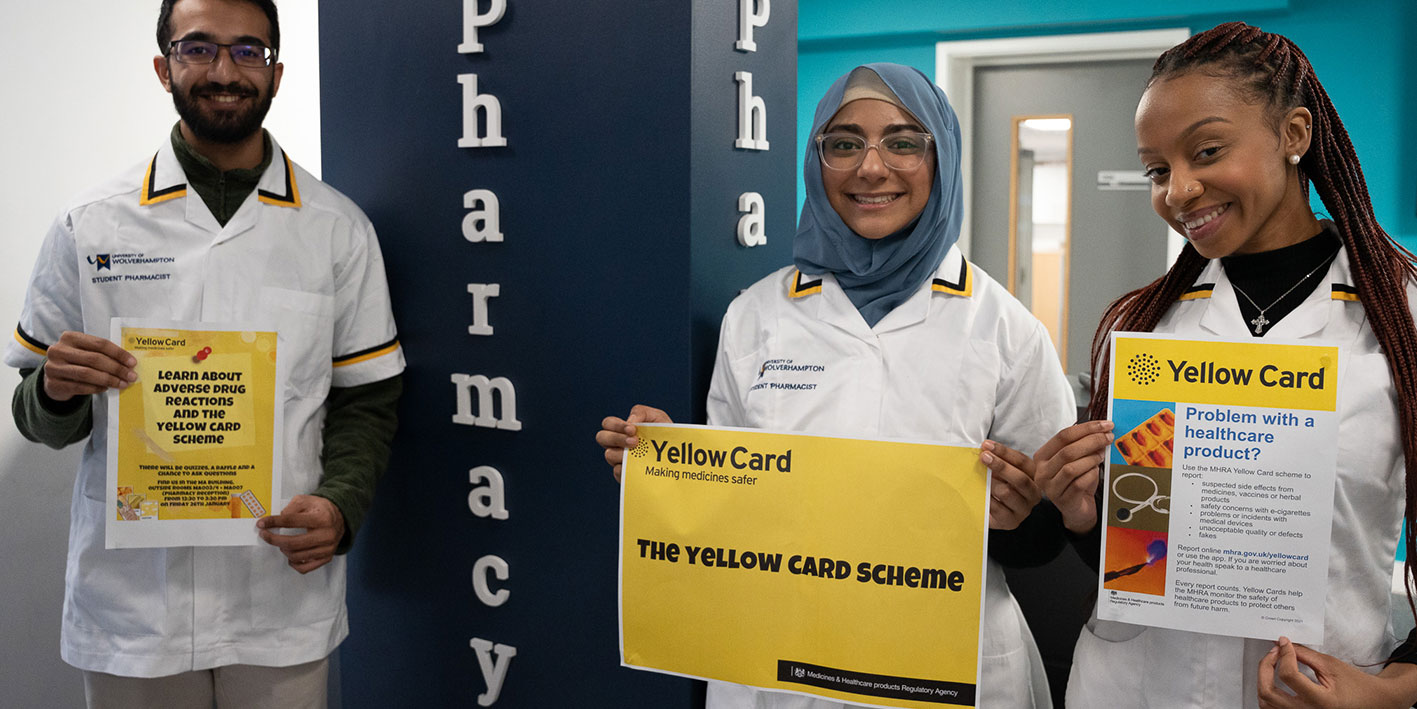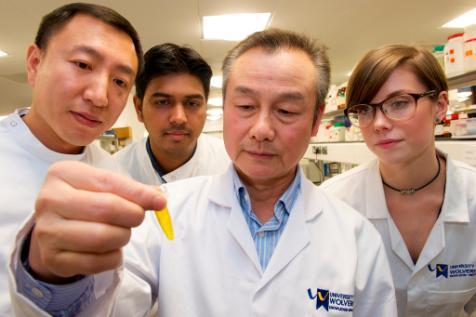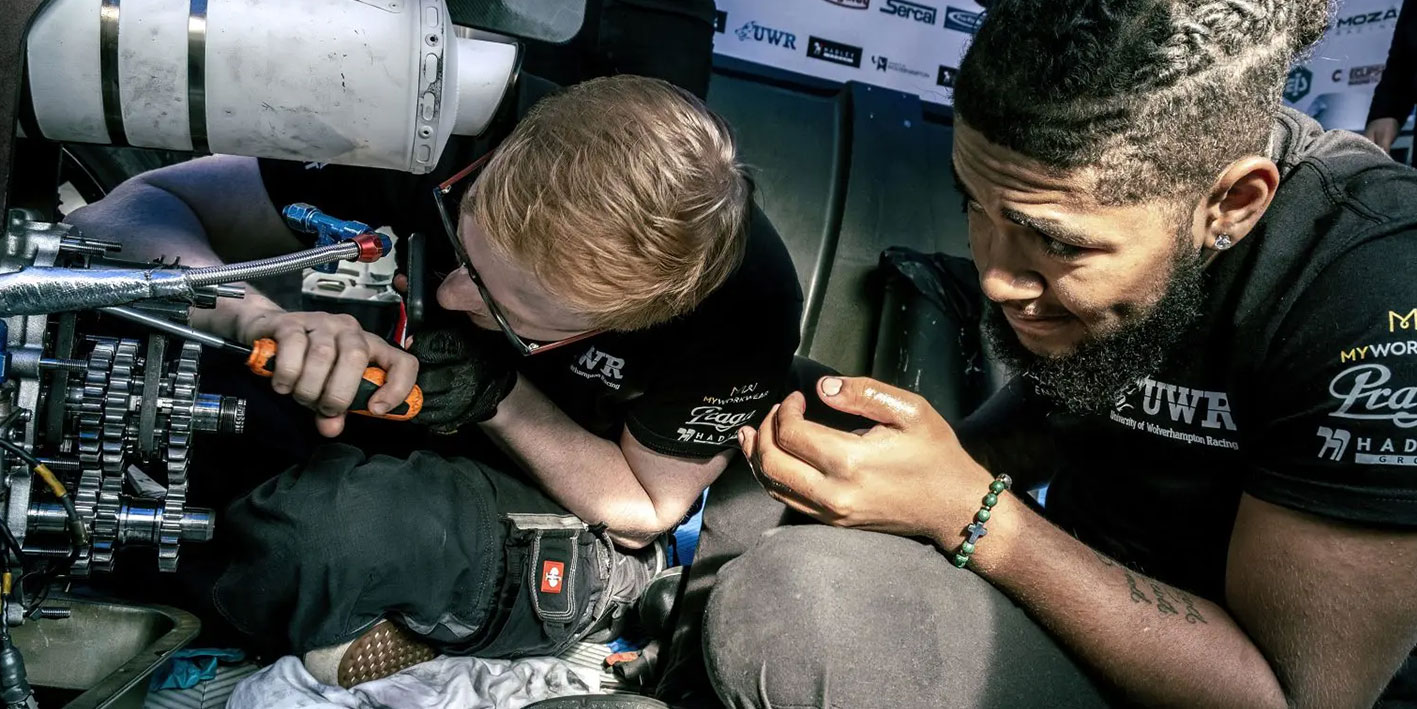
International collaboration funding secured to develop anti-cancer therapy
The University of Wolverhampton is to play a central role in a £600k project to develop an anti-cancer therapy as part of an international research and development collaboration.
The Jiangsu-UK Industrial Challenge Programme, co-funded by Innovate UK and Jiangsu Science and Technology Department in China, includes £90k of laboratory-based research to be carried out by the Cancer Research Group in the University’s Faculty of Science and Engineering.
Led by the Professor of Experimental Cancer Therapeutics, Weiguang Wang, the Cancer Research Group is developing a treatment based on Disulfiram, an existing drug used to treat alcoholism which is showing promising results in pre-clinical testing as a new anti-cancer therapy.
While standard Disulfiram shows strong anticancer activity in the laboratory, its application in cancer clinical testing has previously been inhibited by its very short half-life in the blood stream, where it breaks-down and loses its anti-cancer profile.
Encapsulation of Disulfiram within a poly (lactic-co-glycolic acid) (PLGA) nano-particle allows the half-life of disulfiram within the blood-stream to be extended with the outcome being that the substance maintains its anti-cancer profile long enough to reach tumour sites where it is highly effective against cancer cells, but has low toxicity to normal cells.
The international research collaboration will bring together academia and industry to focus on the development of the drug formulation to regulatory standards and testing its anti-cancer safety and efficacy.

Professor Wang, UK Principal Investigator, said: “We have already demonstrated that our laboratory formulated PLGA encapsulated Disulfiram is effective against a range of cancer types.
“The funding we have secured from Innovate UK and the Jiangsu Science and Technology Department will allow us to move on to the next stage, which is to demonstrate that when our PLGA Disulfiram formulation is produced in a certified quality manufacturing environment in larger quantities, it still works as expected. This activity is crucial in our efforts to demonstrate the safety and efficacy of our novel treatment in preparation for future clinical trials and applications to the European Medicines Agency (Europe) and Food and Drug Administration (USA).
“Our focus is always on the patients, and we hope that we are able to offer an effective treatment to those people diagnosed with our target cancers.”
The work will be conducted by Dr Vinodh Kannappan, Postdoctoral Research Associate at the University, under the guidance of Principal Investigator Professor Wang who is responsible for the UK side of the programme.
The lead UK applicant for the development programme is Disulfican Ltd, the University of Wolverhampton spin-out company set up with Caparo plc. Disulfican has itself secured a £147k share of grant funding from the programme to carry out some of the work needed to prove the formulation’s effectiveness. PLGA encapsulated Disulfiram is being developed and tested against a range of cancer cell-lines, including: mesothelioma (associated with asbestos), glioblastoma (brain tumours) and lung cancer.
Innovate UK is the UK’s innovation agency. It works with people, companies and partner organisations to find and drive the science and technology innovations that will grow the UK economy.
If pre-clinical testing of PLGA-Encapsulated Disulfiram continues to prove successful, then it is hoped that phase I clinical trials may commence in 2020.
For further information regarding the research collaboration project contact Prof Wang w.wang2@wlv.ac.uk
ENDS
For more information please contact the Media Relations Office on 01902 32 2736 or 01902 518647.
For more information please contact the Corporate Communications Team.


/prod01/wlvacuk/media/departments/digital-content-and-communications/images-2024/240328-Varsity-Line-Up-Resized.jpg)
/prod01/wlvacuk/media/departments/digital-content-and-communications/images-18-19/220325-Engineers_teach_thumbail.jpg)
/prod01/wlvacuk/media/departments/digital-content-and-communications/images-2024/240404-Digital-Humanities-Training-Resized.jpg)
/prod01/wlvacuk/media/departments/digital-content-and-communications/images-2024/240320-Uzbekistan-Resized.jpg)
/prod01/wlvacuk/media/departments/digital-content-and-communications/images-2024/240229-The-Link-Resized.jpg)
/prod01/wlvacuk/media/departments/digital-content-and-communications/images-2024/240404-Pharmacy-Students-Resized.jpg)

